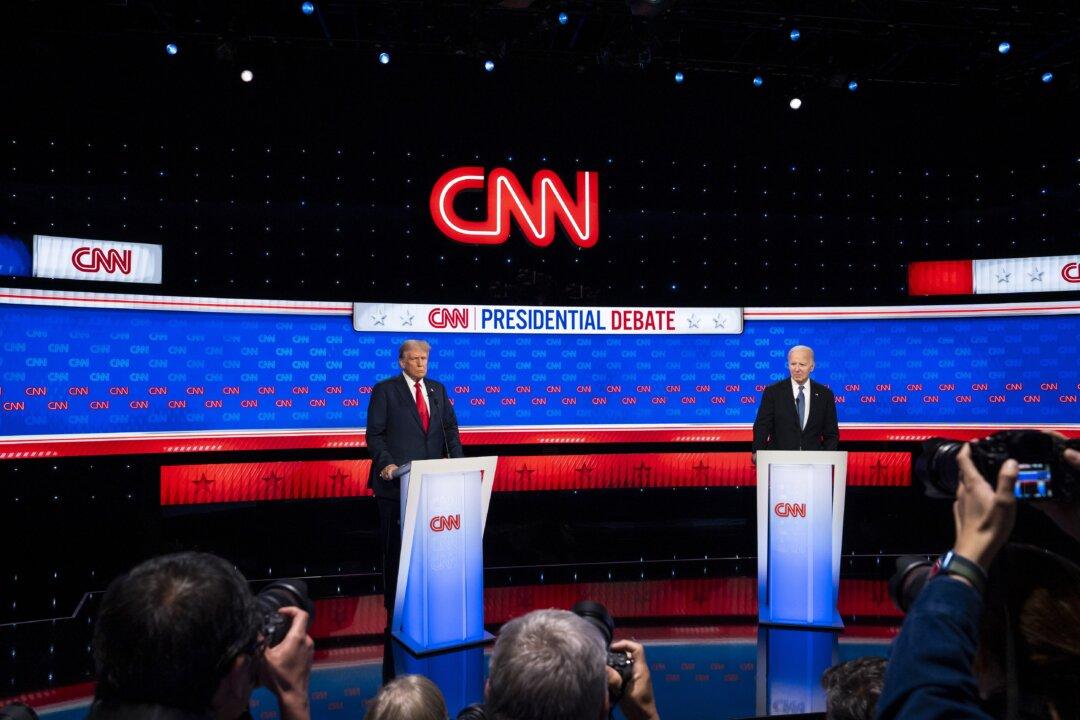Commentary
The first presidential debate of 2024 between President Joe Biden and former President Donald Trump was an exciting affair. It grabbed not only America’s attention but the world’s. Presidential debates bring us together as a democracy because they clarify differences and help us make choices.
This debate, like all real debates, was messy. Despite that Americans see communist China, more than any other country, as our top threat, not a single question was asked about the country. The hosts asked about Russia, Ukraine, Israel, and Hamas, but they didn’t ask about China.





